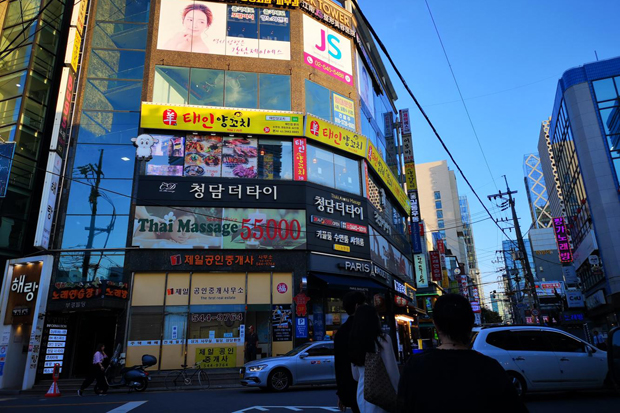
Outbound tour operators reported a spike in illegal job seekers who seek to use tour packages to South Korea as a guise before escaping from the group as soon as they arrive.
"The number of illegal job hunters already exceeded the number of actual tourists. Tour operators have been able to notice the pattern of fake travellers as they mostly come with a new passport without any travel record. We have to reject those suspected customers from joining group tours to avoid problems with the authorities in South Korea," said Charoen Wangananont, president of the Thai Travel Agents Association (TTAA).
South Korean authorities denied entry to 417 out of 697 Thai travellers visiting Jeju from Tuesday to Friday last week.
Mr Charoen said Jeju island became the targeted destination for illegal migrant workers from Thailand as it is a special self-governing province which does not require the Korea Electronic Travel Authorisation (K-ETA) registration, which is a newly introduced system that Thai travellers have to use to apply before departure.
The island has also removed the requirement for a RT-PCR test on arrival to international visitors which means illegal workers can enter the country with lower travel costs.
When combined with a very low airfare to South Korea at 6,00-7,000 baht amid high competition from low-cost carriers at the moment, these factors have lured more workers who seek better wages than in their home country, particularly amid a sluggish economy.
He said if related authorities in Jeju adopt the K-ETA for travellers like other gateways in South Korea, this problem might be partly solved.
"The high minimum wage at around 45,000 baht per month always entices more workers to try their luck. We have seen this persistent problem since before Covid-19, but due to an influx of Thai travellers to South Korea of around 500,000 in 2019, the portion of illegal workers was smaller in comparison to general tourists," said Mr Charoen.
However, the number of illegal workers, known as "little ghosts", might remain higher than tourists over upcoming months as regular tourists are concerned about the possibility of being rejected even if they don't have false intentions.
Moreover, the higher cost of travel including two RT-PCR tests before and after arriving at the destination and the complicated K-ETA system is also preventing tourists from taking outbound trips to South Korea.
TTAA is scheduled to meet the Korea Tourism Organization (KTO) within two weeks to discuss tourism promotion and remaining obstacles.
He said TTAA will ask KTO to consider more simplified travel rules to facilitate travellers as seen from Tourism Malaysia which recently removed all Covid-related requirements, including pre-registration and a Covid test from Aug 1 after TTAA met its tourism minister last month.







